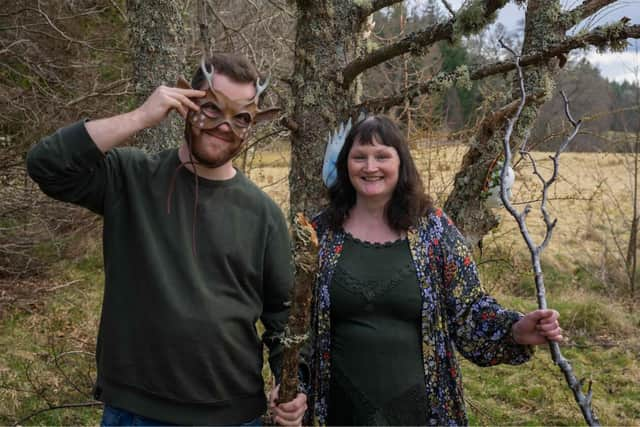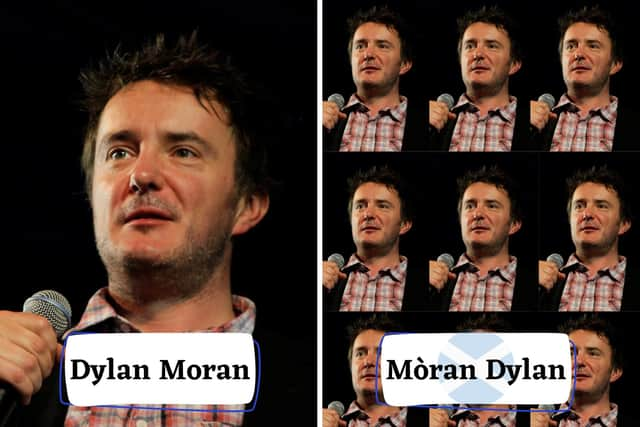Scots Gaelic on Duolingo: Is it good for Gaelic? Does it connect Scots to their heritage? Scotsman reviews
It’s Saint Andrew’s Day, Scotland’s national day in honour of our patron saint - so what better day to discuss Scottish culture and heritage? Of course, I’m referring to Scottish Gaelic, the Celtic tongue that graced this land around 500 AD by way of Ireland but is now under threat of extinction. For those passionate about it, the 2022 report that Duolingo pulled in 1 million new students globally came as phenomenal news.
However, others asked the - understandable - questions of what is Gaelic, why should we care about it, and is it worth learning? As someone connected to Gaelic culture with family members who are fluent, who has used Duolingo for years (696 day streak), and with volunteering experience for Gaelic groups like Cultarlann, I was chuffed when PR firm The Romans offered me a Duolingo Plus subscription so I could try out the unlimited app.
Advertisement
Hide AdAdvertisement
Hide AdNow, I’ll share what Duolingo can (and can’t) do for Scottish Gaelic, if it deepened my connection to my Scottish heritage and why I believe it’s worth studying it even if you’re not a Scot.
![Over 1 million people have taken on Scottish Gaelic with the language-learning app Duolingo, but is it good? [Translation: "I am seeing a Cow."]](https://www.scotsman.com/webimg/b25lY21zOmM0MWZlMmQzLWQ4MGUtNDg1OC1hMzJiLTAxY2IzNDNlZmQxNTozN2EwNGY2My0yYmZlLTQ0N2UtOGQxZi0wOTc5Zjc3ODA5MTU=.jpg?crop=3:2,smart&width=640&quality=65)
![Over 1 million people have taken on Scottish Gaelic with the language-learning app Duolingo, but is it good? [Translation: "I am seeing a Cow."]](/img/placeholder.png)
What Duolingo can (and can’t) do for Scottish Gaelic?
Cannae (Scots: can’t):
Negatives out the way first, Scottish Gaelic on Duolingo has some superficial issues. What’s on offer with vocabulary at the beginning can be unstimulating, for those that studied French at school you’ll remember basics like “My brother likes to play football on the weekend with his friends” and there’s a similar variety when starting off here.
Also, the spoken Gaelic sometimes suffers from sound quality issues as the audio can be a bit rough. Lastly, unlike languages like Spanish that come built-in with stories that let you follow a tale and interact (a useful and entertaining feature) Scottish Gaelic on Duolingo lacks this.
Can:
On the plus side, this is a free language-learning app that can effectively kickstart your journey to being bilingual. When starting out with any tongue, basics like “how are you” and “my name is” are always useful and the app wastes no time in teaching you these phrases. Plus, the four columns of language-learning which are reading, writing, speaking and listening, all feature prominently here.
Unlike mainstream languages, Scottish Gaelic does not have a ‘text to voice’ option when you translate it on Google (leaving an obvious weakness for a language that has little pronunciation in common with English!) Duolingo, however, bridges the gap by having all Gaelic text attached to recordings that allow you to grasp the pronunciation. Lastly, if you’re from Scotland or appreciate our pop culture you may enjoy lines like “Tha IRN-BRU math” for reminding us of Scotland’s national drink.


Does learning Gaelic deepen your connection to Scottish heritage?
This is tricky as, historically, many celtic languages have graced Scotland long before Gaelic. However such examples, like Pictish, are long-gone with no chance of revival. For some this is tragic as it is an unfixable loss of culture and identity, which is why learning Scottish Gaelic is powerful for many. As an ancient Scottish tongue that, despite the threat of extinction, still manages to retain native speakers and global interest from new students, anyone passionate about cultural preservation has an opportunity to do so here.
For me, as someone who worked across Asia and Africa and learnt a second language (Spanish) what I notice is that language is so embedded in communities’ cultures and how they interact with the world. If you’ve ever tried to speak someone’s native tongue despite being monolingual then you’ll know that such people tend to deeply respect the effort and feel closer to you for it. A similar sensation takes place with Scottish Gaelic as you utter the words (some of them hilarious like “Sea Pig” for a Whale) that ancient peoples before you used, and in appreciation of that it deepens the sentimental connection to where you came from.
What it means to connect to culture is a broad topic which varies for everyone, but for me I do feel closer to Scotland as my home country when I study Gaelic and especially when I teach others about it just as people from other cultures taught me about their native tongues.


Is it worth learning Scottish Gaelic?
Advertisement
Hide AdAdvertisement
Hide AdRegardless of your Scottish ties there is huge worth in learning Scottish Gaelic. Why? There are many reasons both logical and sentimental for doing so.
Firstly, it is well-known that bilingualism improves cognitive ability and that bilinguals often have “superior ability to concentrate, solve problems and focus, better mental flexibility and multitasking skills” as the BBC reports.
Secondly, Scotland’s pop culture legacy is huge (thanks Mel Gibson) yet Gaelic is a niche language, therefore when you try it you find yourself welcomed into a tight knit community that is grateful for you. Any learner of a secondary language can tell you that the highlight of doing so is the community it allows you to connect to. Even TV star Martin Compston recently made headlines for studying Scottish Gaelic, amid other celebrities, because despite being a famous country aspects of Scotland’s culture, like its languages, have been forgotten about and there’s a clear market for exploring it.
Lastly, the Language Conservancy group estimates that a language ceases to be spoken every 40 days in today’s world, which is partly due to lingual dominance we see with major languages like English that is now so embedded institutionally that there is seemingly no practical incentive to use another tongue. If cultural preservation (and by extension language) matters to you then you should be a part of the passionate communities that lead the way in counteracting this downfall of minority languages.
Besides, many words in the English language are derived from Scottish Gaelic so you’re already off to a good start. Why not give it a go? Happy Saint Andrew’s Day and I hope to see you on the Duolingo scoreboard soon!
Comments
Want to join the conversation? Please or to comment on this article.
